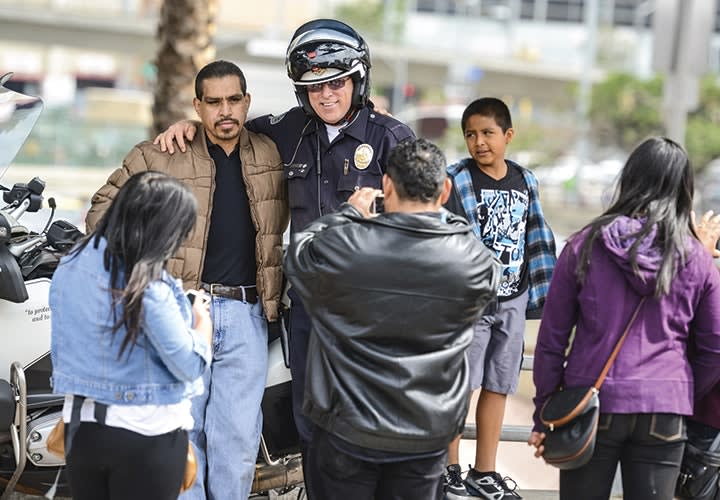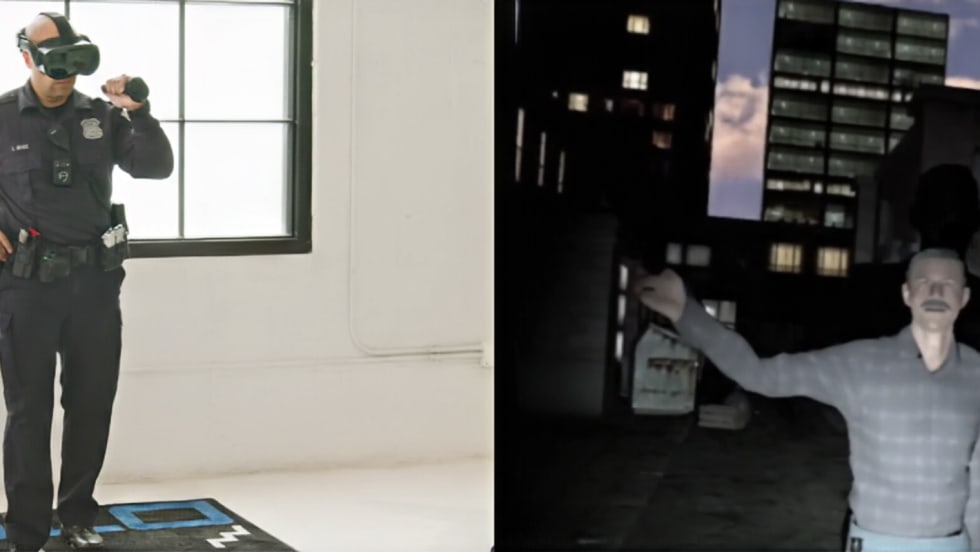Unfortunately, some front-line police leaders are succumbing to the negativity. A few simple reminders of the power and efficacy of leaders who direct with intentionality and resolve may offer some insight and a recalibrated plan for modern-day leaders.
In our modern, internet-enabled era of policing, proactive and creative leadership is much more critical than in days past. As the volume of police-detractors, anti-authoritarian movements, and overt cop-haters is maximally amplified by the internet, law enforcement leaders must be ever vigilant in preparing, equipping, and training their subordinates to face these new challenges.
How can leaders energize their troops with the online digital backdrop of vile, anti-police rhetoric clanging incessantly? Is it possible for modern front-line police leaders to maintain and even grow morale among their officers? How should police leaders determine when the threshold of therapeutic "venting" by their officers crosses the line into counterproductive whining? And, most importantly, can leaders believably and successfully lead by example in this challenging climate?
Unfortunately for the law enforcement community and our country in general, some front-line police leaders are succumbing to the negativity: projecting a self-preservative, cowardly, passive work ethic on to their officers. A few simple reminders of the power and efficacy of leaders who direct with intentionality and resolve may offer some insight, and a recalibrated plan for 21st century police leaders.
Confined Venting
First of all, leaders must never lose sight of the fact that our officers are merely humans, with normal human emotions, doubts, fears, and concerns. It is challenging and stressful for officers to repeatedly see their chosen profession demonized with vile, malicious metaphorical rhetoric every time they turn on the evening news or peruse social media. Particularly following the recent murders of the five Dallas Police Officers after a large anti-police demonstration, it can be a natural progression for in-house conversation among officers to turn negative and stay there.
Police culture, with its many quirks and eccentricities, has always left room for a healthy sum of internal "whining," which is generally quite therapeutic as officers are allowed to be heard and to share their complaints among the safe environment of their peers. It is advisable for first-line leaders to give their officers, deputies, agents, and troopers the freedom to espouse and discuss their negative and often counterproductive thoughts and emotions among one another. Often both the officer venting and those officers listening mutually benefit from these conversations inside the confines of police departments, realizing that they are not alone in their doubts and concerns.
However, leaders should be alert to the possibility of this venting becoming too contagious, negative, and addictive among their troops. Leaders must allow for the venting, but monitor it closely should it endanger team cohesion, unit morale, or mission success. The therapeutic in-house discussion, complaining, and venting must never leave the walls of the police station once it has served its purposes.
Sphere of Influence
Secondly, leaders should preach the notion of "sphere of influence" among their officers. This simple mental model posits that there are some things within our control, and other things which simply are not. For example, a rural deputy in North Carolina has no control over an emotionally charged officer-involved shooting in California, but she can always singularly control her individual duties, her shift, her attitude, and her beat.
Within the rock climbing community it is often referred to as having a "three-foot worldview," as climbers high on a rock wall have zero control over wind, weather, or tangled ropes, but can control their immediate reach and the next handhold—the three feet around them. Any mental energy spent by the climber worrying about the bad weather or tangled gear is actually a waste of focus.
Similarly, officers who choose to participate in heated, emotional online arguments spurred by the anti-police crowd are truly misusing their energy and their focus. This elementary idea can help young law enforcement officers survive the negative, anti-police onslaught of social media tripe, and condition them to focus on what they can individually influence. When officers train themselves to deemphasize or even completely ignore mass media's derisions, and focus wholly on the quality of their reports, or their next citizen contact, or their professional style of communication, both the individual officer, and the agency, will benefit.
Individual Ownership
Next, the importance of individual ownership is vital for leaders to instill in their officers. After adopting the "three-foot worldview" and realizing that many things are outside of their control, officers can then begin to "own" what is rightly theirs to exercise responsibility over. Once the negative, anti-police distractions of mass media are removed, officers are then free to evolve and refine their craft. Complete mental attention can then be paid to honing the professional police trade, to repeatedly sanding the edges of our calling, and to making good officers even better.
Leaders should push their officers to take full responsibility for anything that comes across their path, to examine the various challenges, and exercise creativity in overcoming such obstacles in moving toward solutions. The potency of each and every officer truly owning the good and the bad that will invariably come their way each work day, and then proactively working toward solutions, cannot be understated. It is powerful when officers are reinvigorated with the energy and potency that comes along with owning their trade. With this perspective, even the frustrating difficulties that arise can be seen through the lens of opportunity for change, or flexibility, or self-improvement. Satisfactory officers can then become extraordinary, and excellent officers can evolve even further along the professional scale.
Making Connections
Finally, and perhaps most importantly, in knitting these concepts together are the individual, professional connections that can then be fostered between officers and the public. In recent years, many young officers have shrunk back from personal, on-the-street conversations with the citizens as we often falsely attribute the online anti-police rubbish to the majority of citizens. It can become a precarious mental trap for officers to begin to pigeon-hole and project onto all citizens the same irrational, vile emotions of a small online minority of police detesters. It is an equally destructive mistake for officers to stereotype all of the public as "cop haters" as it is for citizens to stereotype all officers as "racist murderers."
Young officers are often overcome with disbelief when, in a public setting, they receive dozens of "thank you" wishes and other "atta-boys" from the underrepresented majority. The key to these quality interactions is the officers must be out and among their citizenry. Even among large, emotionally charged protests, I have personally experienced numerous sincere, honest, fulfilling conversations with protestors and demonstrators, only yards away from the mass demonstration, as people are all alike in wanting to be heard and spoken to. These types of one-on-one human interactions serve to break down the dual threat of negative projection and stereotyping, both for officers and for the public.
The internet and mass media have become amplified sounding boards for those who wish to spew vile negativities toward law enforcement in America, and the effect of that constant drip of venom can gravely impact law enforcement officers, if left unchecked. When creative and energetic police leaders take ownership of their officers, in caring for their thought-lives and refocusing on the positive impact law enforcement can have every day, we can better serve and protect. As leaders equip their officers to positively "vent" among themselves, internalize the "sphere of influence" mindset, and take powerful ownership of those things that we can control, officers will become more confident and intentional in engaging our citizens, leading to more healthy understanding on both sides of the badge.
Kory Flowers is a 17-year veteran sergeant with the Greensboro (NC) Police Department. He trains law enforcement officers nationwide on various subversive criminal groups ranging from white supremacists to sovereign citizens, and has written articles and conducted interviews and podcasts for publications including POLICE Magazine, the Los Angeles Times, the Southern Poverty Law Center, and National Public Radio.











